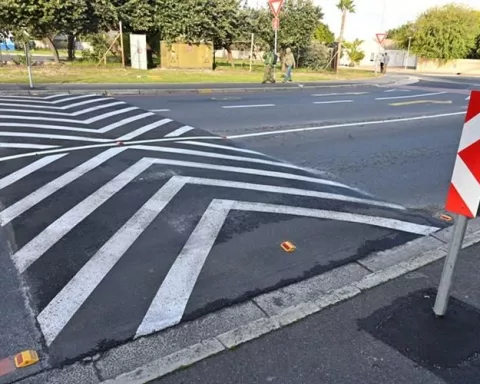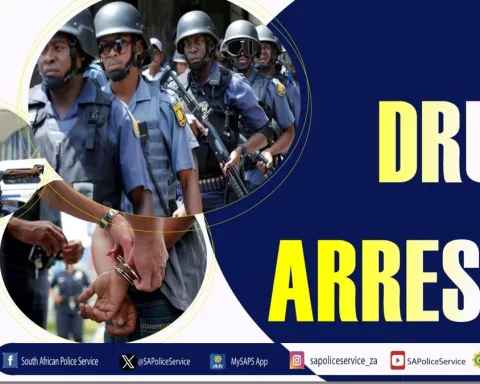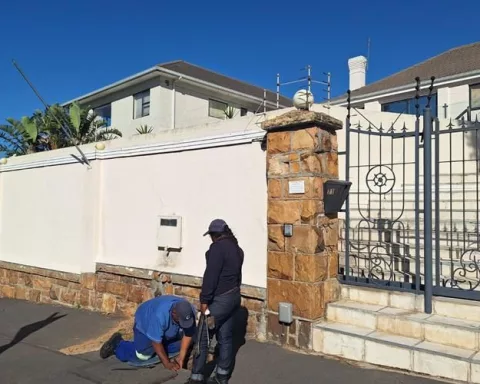The Cape Peninsula Baboon Advisory Group (CPBAG) is a new team formed in 2025 to help baboons and humans live together peacefully in South Africa’s beautiful Cape Peninsula. They bring together community members, scientists, and animal welfare advocates to find smart and kind ways to manage the local baboon population. With so many people living near baboons, CPBAG focuses on listening to the community and using their ideas to solve problems. This exciting initiative not only aims to protect the baboons but also ensures a healthy environment for future generations to enjoy.
What is the Cape Peninsula Baboon Advisory Group (CPBAG)?
The Cape Peninsula Baboon Advisory Group (CPBAG) is a collaborative initiative aimed at managing the Chacma baboon population in South Africa’s Cape Peninsula. Established in 2025, it focuses on fostering coexistence between humans and baboons through community engagement, strategic planning, and ethical wildlife management practices.
The Birth of a Collaborative Initiative
Nestled within the breathtaking landscapes of South Africa’s Cape Peninsula, where the iconic Table Mountain meets the Atlantic Ocean, a groundbreaking initiative has emerged in wildlife management. The establishment of the Cape Peninsula Baboon Advisory Group (CPBAG) marks a significant advancement in the stewardship of the region’s Chacma baboon population. Announced in February 2025, this initiative reflects a unified effort by diverse stakeholders to tackle the intricate challenges that arise from human-baboon interactions.
Leading this ambitious endeavor is the Cape Peninsula Baboon Management Joint Task Team (CPBMJTT), a coalition comprising SANParks, CapeNature, and the City of Cape Town. Their mission is to weave community input into the management process, ensuring solutions are both effective and culturally considerate. The CPBAG’s creation signifies a pivotal shift toward inclusive conservation strategies, mirroring global trends in environmental movements. The group’s inaugural meeting in Tokai—a suburb celebrated for its lush forests and vineyards—brought together representatives from a wide array of sectors, including community associations, research institutions, and animal welfare organizations. This diverse gathering promises a holistic approach to baboon management, addressing ecological needs alongside human concerns.
Prominent figures like Luana Pasanisi from the Green Group Simon’s Town NPC have joined CPBAG, bringing their relentless advocacy for sustainable living to the table. Francesca de Gasparis of the Southern African Faith Communities’ Environmental Institute offers a unique perspective, intertwining ecological stewardship with spiritual insights. Meanwhile, Bev Stevens of the Sunnydale Ratepayers’ Association plays a key role in voicing community concerns, ensuring policies resonate with citizens who live in close quarters with these intelligent primates.
Fostering Coexistence Through Strategic Planning
At the heart of CPBAG’s mission is a commitment to creating a harmonious coexistence between humans and baboons, as outlined in the Cape Peninsula Baboon Strategic Management Plan (CPBSMP). This goal extends beyond simple conflict resolution; it demands a deep understanding of the Chacma baboon’s behavior, ecology, and social dynamics. Historically, the Cape Peninsula has led the way in conservation efforts, boasting a rich tapestry of biodiversity supported by unique fynbos vegetation. However, urban expansion increasingly infringes on natural habitats, resulting in frequent encounters between baboons and local residents.
To address these interactions, CPBAG employs area-specific solutions tailored to community needs. This method aligns with adaptive management principles, a model gaining favor in global conservation circles. By continuously monitoring outcomes and refining strategies, CPBAG aims to balance ecological integrity with human development. Central to this endeavor is stakeholder collaboration, as engaging local communities in decision-making processes not only bolsters the legitimacy of conservation efforts but also empowers individuals to partake in environmental stewardship. Anecdotal evidence suggests such involvement can yield innovative solutions, tapping into local knowledge and fostering a sense of ownership.
Michelle du Toit from the Kirstenhof and Environs Residents’ Association exemplifies this commitment to grassroots activism. Her involvement underscores the importance of community-driven initiatives, reminding us that effective conservation often begins at the local level. Academics such as Esme Beamish and Nicoli Nattrass from iCWILD at the University of Cape Town contribute scientific rigor to the advisory group, their research on baboon ecology and behavior providing invaluable insights that inform policy decisions with empirical evidence.
Echoes of History and Ethical Considerations
The formation of CPBAG mirrors the Romantic era’s admiration for nature and the subsequent rise of environmental consciousness in the 20th century. As artists and philosophers once strove to reconnect with the natural world, modern conservationists endeavor to restore balance between humanity and the environment. The involvement of organizations like the Cape of Good Hope SPCA, represented by Jon Friedman, emphasizes the ethical dimensions of baboon management. Ensuring animal welfare remains paramount, with CPBAG advocating for humane approaches that prioritize the well-being of all species involved.
CPBAG’s mission presents the formidable task of reconciling diverse interests, yet within this challenge lies an opportunity to forge new partnerships and strengthen existing alliances. By fostering dialogue and mutual understanding, the group aims to establish a resilient network capable of navigating the complexities of modern conservation. Their work highlights the interconnectedness of social, ecological, and economic systems, echoing the holistic perspectives of indigenous cultures that have long recognized the interdependence of all life forms.
A Beacon of Hope for Future Generations
The Cape Peninsula Baboon Advisory Group stands as more than a response to local challenges—it serves as a beacon of hope for sustainable coexistence. Through innovative strategies and collaborative efforts, CPBAG seeks to safeguard the Peninsula’s rich natural heritage for future generations. By integrating diverse perspectives and harnessing the collective expertise of its members, the group endeavors to protect and preserve the unique ecosystems of the Cape Peninsula.
In this endeavor, CPBAG not only addresses immediate concerns but also contributes to a broader global dialogue on sustainable wildlife management. As they embark on this pioneering journey, the group exemplifies a commitment to creating a world where humans and wildlife can thrive together, ensuring a legacy of biodiversity and harmony for those who follow.
Frequently Asked Questions (FAQ)
What is the purpose of the Cape Peninsula Baboon Advisory Group (CPBAG)?
The Cape Peninsula Baboon Advisory Group (CPBAG) aims to facilitate peaceful coexistence between humans and the Chacma baboon population in South Africa’s Cape Peninsula. Established in 2025, the group collaborates with community members, scientists, and animal welfare advocates to develop effective and ethical wildlife management strategies.
Who are the key stakeholders involved in CPBAG?
The Cape Peninsula Baboon Management Joint Task Team (CPBMJTT), which includes organizations like SANParks, CapeNature, and the City of Cape Town, leads the initiative. Additionally, representatives from community associations, research institutions, and animal welfare organizations, such as the Green Group Simon’s Town NPC and the Southern African Faith Communities’ Environmental Institute, contribute diverse perspectives and expertise to the group’s efforts.
How does CPBAG engage with the community?
CPBAG places a strong emphasis on community involvement by actively listening to local residents and integrating their ideas into the management process. This inclusive approach empowers citizens to participate in decision-making and fosters a sense of ownership over conservation efforts, ultimately leading to more effective and culturally considerate solutions.
What strategies does CPBAG employ for managing baboons?
CPBAG utilizes area-specific solutions tailored to the needs of the community, as outlined in the Cape Peninsula Baboon Strategic Management Plan (CPBSMP). The group engages in adaptive management principles, continuously monitoring outcomes and refining strategies to balance ecological integrity with human development. This approach also considers the behavior, ecology, and social dynamics of the Chacma baboon.
How does CPBAG ensure the welfare of baboons and other wildlife?
Animal welfare is a core priority for CPBAG. The group advocates for humane approaches to wildlife management, ensuring that the well-being of all species involved is paramount. By collaborating with organizations like the Cape of Good Hope SPCA, CPBAG emphasizes ethical considerations in their strategies and initiatives.
What is the long-term vision of CPBAG?
CPBAG envisions a future where humans and wildlife thrive together in harmony, safeguarding the Cape Peninsula’s rich natural heritage for generations to come. Through innovative strategies and collaborative efforts, the group aims to contribute to the broader global dialogue on sustainable wildlife management while protecting the unique ecosystems of the region.












